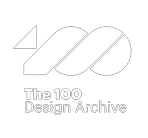National Women's Council Identity Design
The National Women’s Council is the national representative organisation campaigning for rights and equality for women and girls. A non-profit, non-governmental organisation founded in 1973, NWC represents women’s groups around Ireland to advocate for equality. They campaign for women in leadership, women’s right to health, valuing care work, women’s economic independence, reaching out to young people and building the women’s movement.
NWC have a proactive approach to promoting feminism and advancing women’s rights. In carrying out their work, NWC are guided by their core values of feminism, solidarity, collaboration, inclusion and intersectionality.
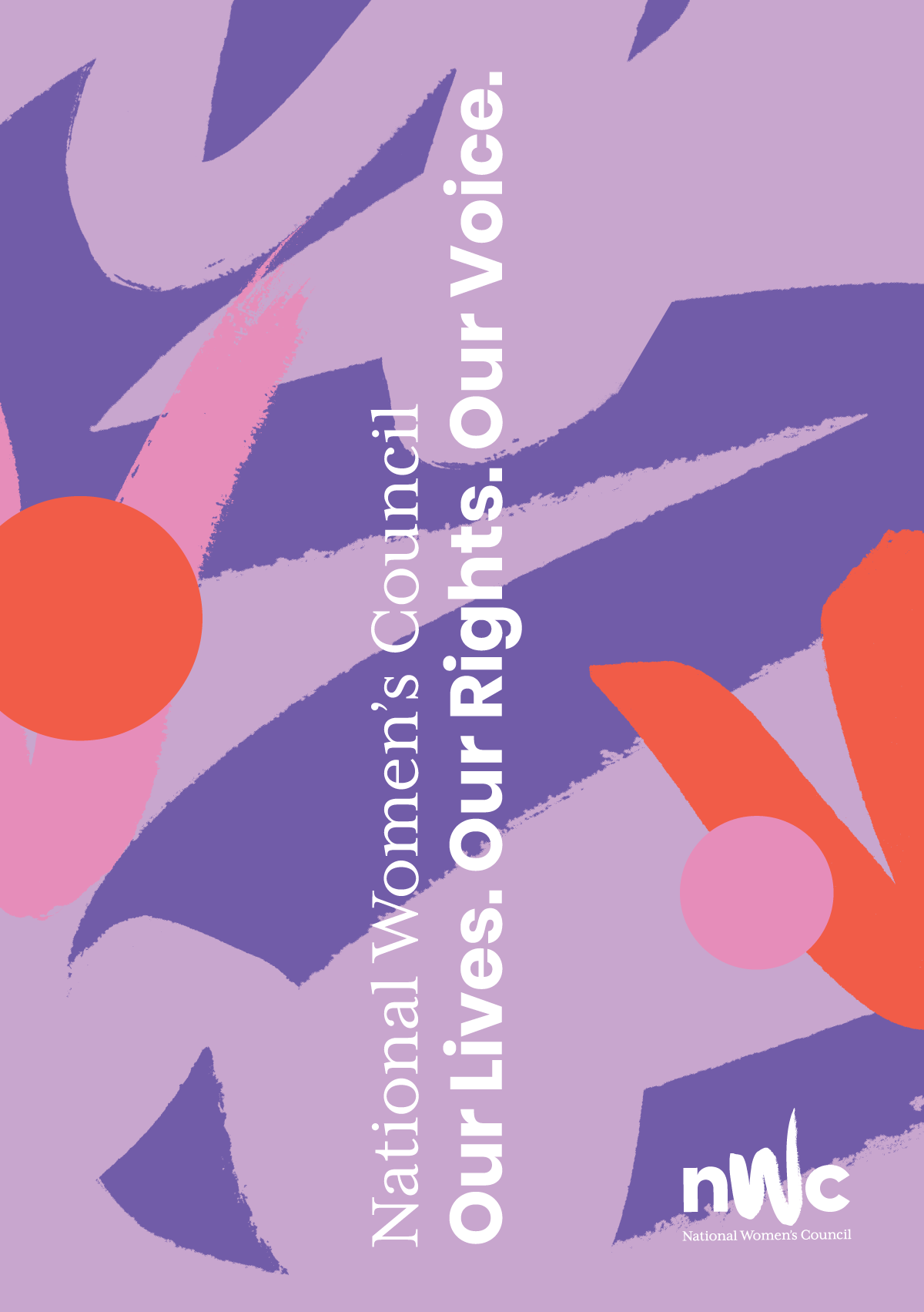
Irish Context
Irish society still bears the scars of a history overshadowed by the catholic church, blighted by Magdalene Laundries for unwed mothers, the Marriage Bar imposed on working women and decades of religious oppression with devastating consequences for many women. Rape in marriage only became unlawful in 1990 with the first case prosecuted in 2002.
Over the past number of years Ireland has made significant changes to advance the cause of gender equality; most notably the ratification of CEDAW in 1985, the vote to repeal the eighth amendment and legalise abortion care in Ireland in 2018 and Ireland’s ratification of Council of Europe Convention on preventing and combating violence against women in 2019. As Ireland achieves greater gender equality, it is worth remembering how recent many of these events are, and how equality does not happen without the committed work of activists and advocacy organisations.
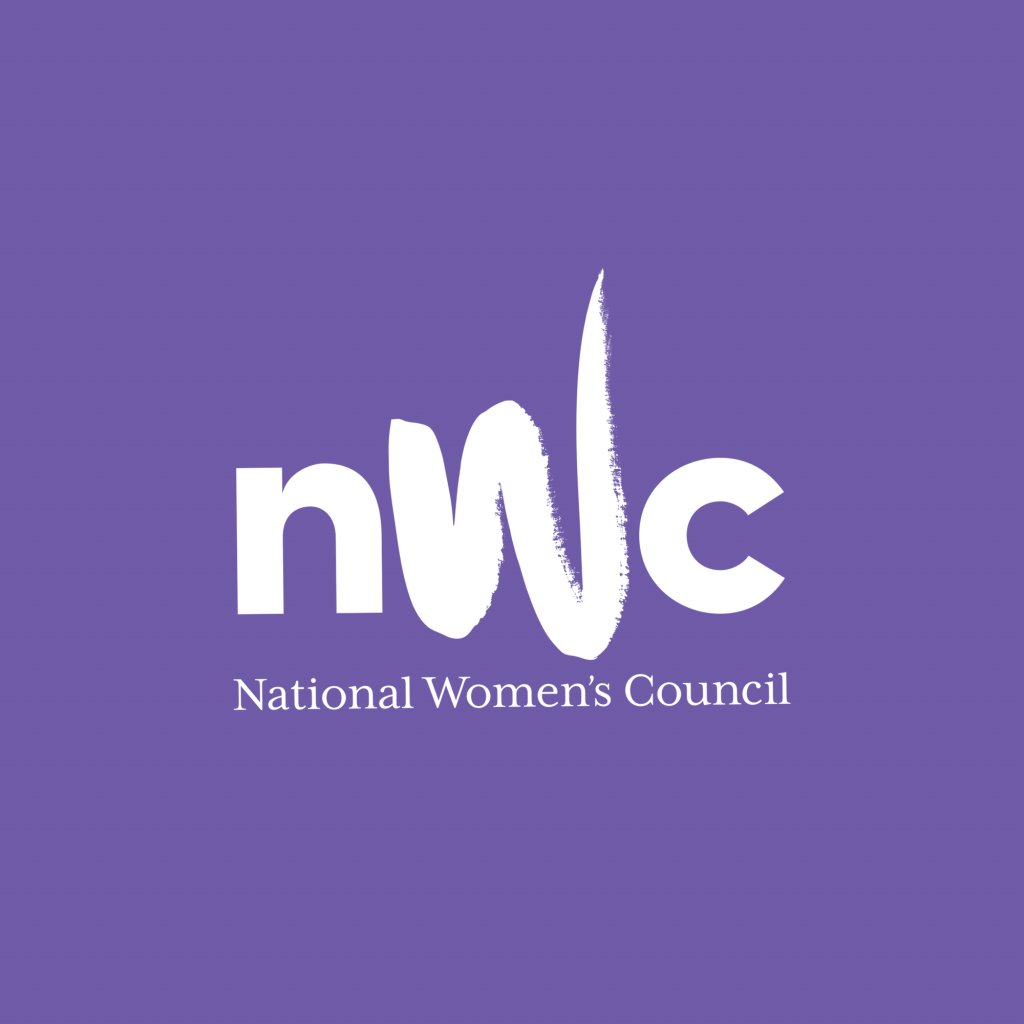
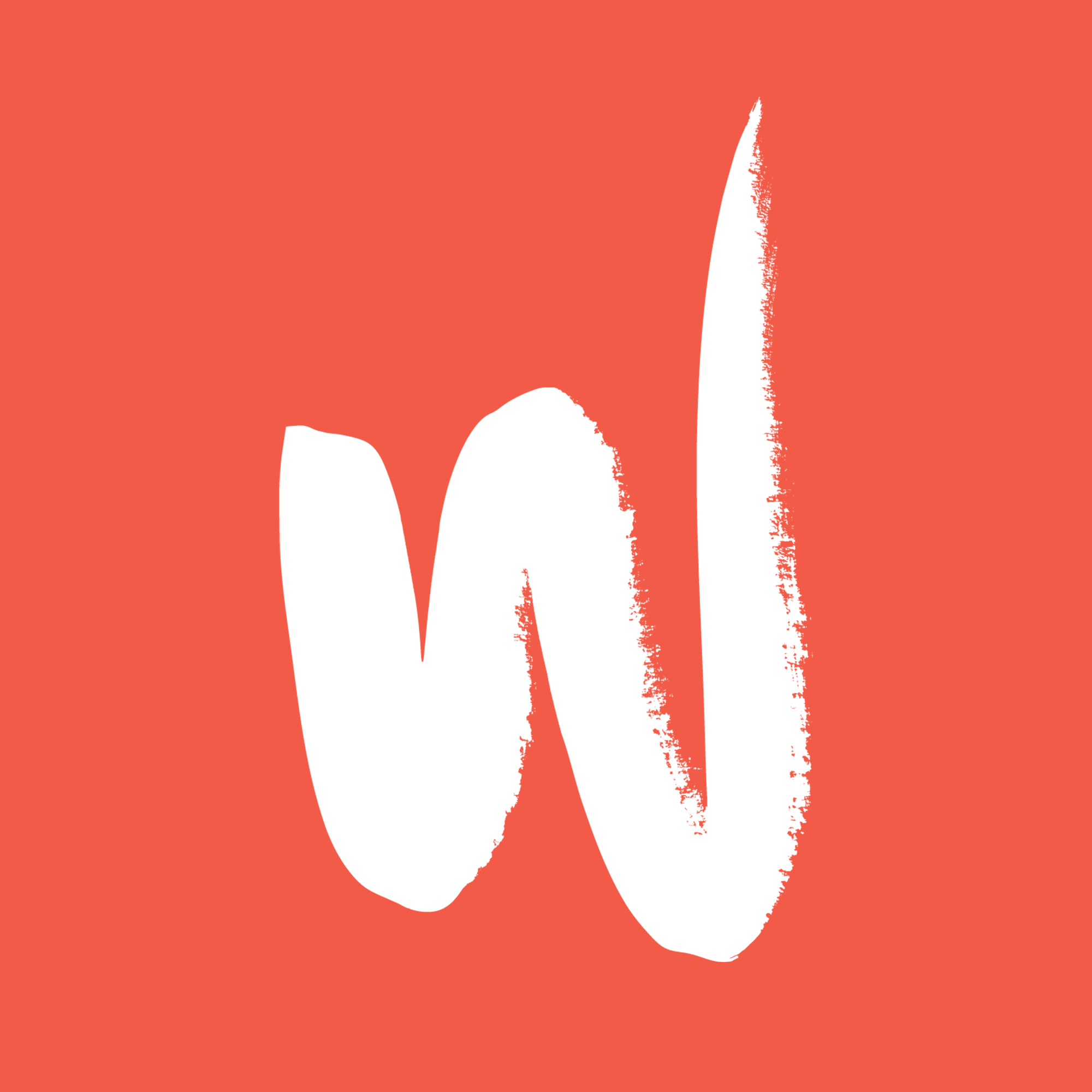
A New Identity for a New Ireland
Following these major achievements, the National Women’s Council and its members conducted a review of their communications and identity design to ascertain if it still represented the organisation and its work.
Language facilitated a roundtable discussion of staff, board mambers and stakeholders to consider the character of the organisation and how its identity should support its work. A consensus emerged from these consultations that, as an evolving organisation at the forefront of social change, NWC needed an identity which would express their energy, commitment and values.
The identity would have to embody an Ireland with progressive values, youthful ambition and increasing momentum; and inspire individuals and groups to come on that journey with them. As a long-time collaborator with National Women’s Council, Language approached the strategic and creative exploration of this project with a shared sense of values and purpose.
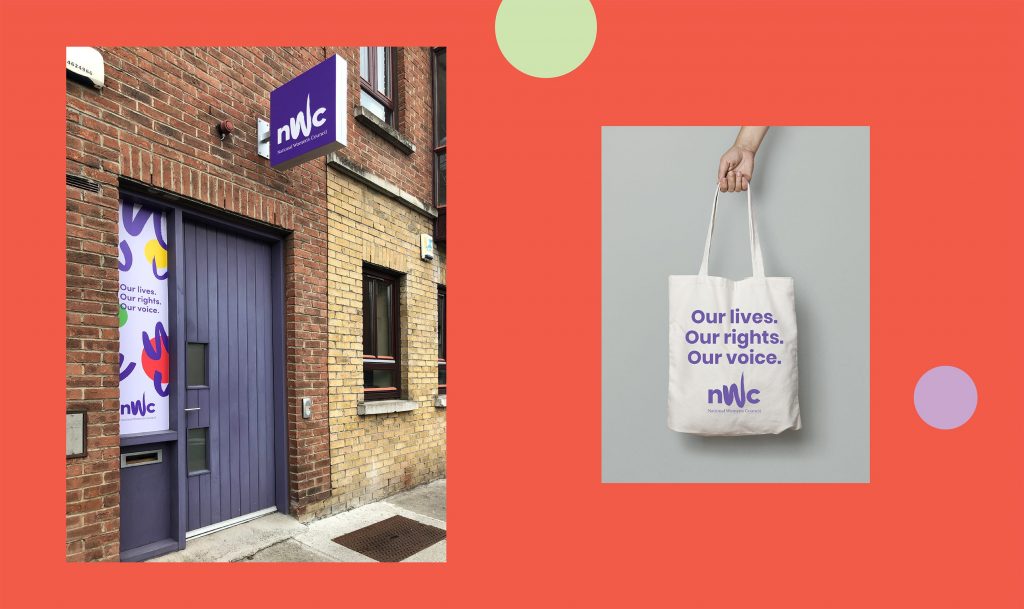
Understanding the Organisation
To launch the process of developing a new identity, we began with a number of workshops with the NWC team. While we were familiar with the organisation, we wanted to refresh our understanding of the NWC, glean from them how they have changed and establish directions for a new identity. This was a process of questioning and discussion about who NWC was through words and phrases that best expressed their mission and character.
NWC is built on equality, leadership, solidarity, representation and community. A new identity should showcase how dynamic, engaged and encouraging they are as an organisation.
Design Exploration
To facilitate discussion of design development, we began by creating visual tools which were based around loose themes. Figurative, typographic and abstract expressive mark making and graphics were used to explore different themes. How strong? Individual or community? How bold, how subtle? These were not just questions of aesthetic, but a way of probing the identity as it evolved. This project needed to result in an identity that is authentic and true to NWC as a community of thinkers and activists.
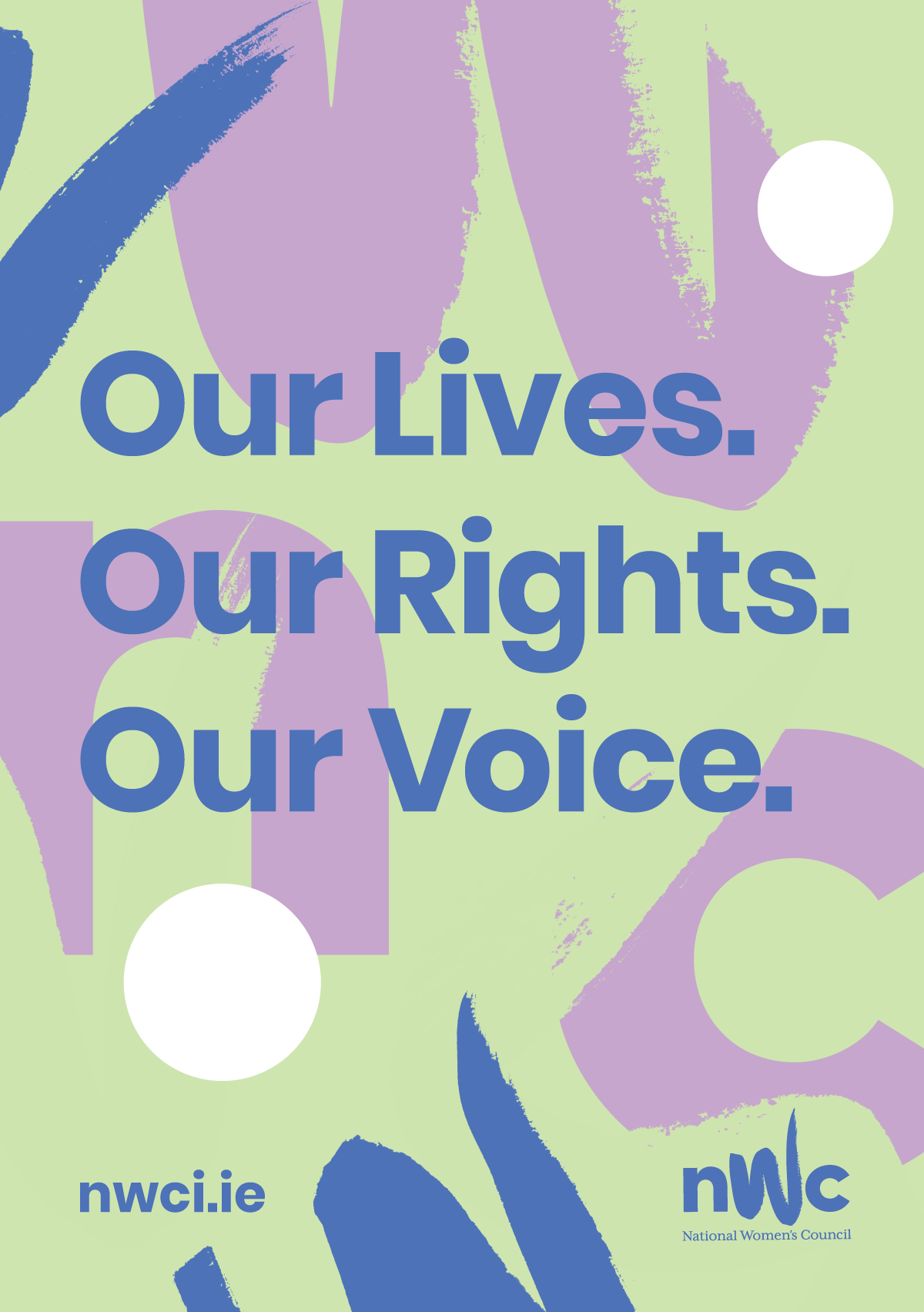
Our Lives, Our Rights, Our Voice
The NWC identity needs to engage a broad audience including members and potential members of the NWC, public representatives, policy-makers and advisors, journalists and commentators, NGOs nationally and internationally, and of course, the general public. All of these groups would have to understand who NWC are and what they stand for.
We also developed a number of straplines which expressed the mission of the NWC to build a more equal Ireland. ‘Our Lives, Our Rights, Our Voice’ expresses the relevance of the NWC, their relentless campaigning for women’s rights and the way in which they represent their members and the women of Ireland more generally.
Referencing the suffragette struggle for women’s right to vote, this proposition is emotional as well as rational. It is a rallying cry, an expression of solidarity among women and a proud statement of our equality, participation and representation.
Creative Collaboration
This collaborative process resulted in a flexible, creative typographic design that put the ‘W’ of Women in the centre of the new identity. The new logomark is supported by a colourful and contemporary visual framework. The expressive ‘W’ centres NWC bold approach to diversity, inclusivity and collaboration – here is where, as women, we make our mark.
Contemporary, energetic and dynamic, the new identity communicates the relevance and effectiveness of the organisation. NWC is building coalitions, starting conversations, leading change and defending progressive gains. This is an organisation that gives voice to the women of Ireland today while building a better future for the women and girls of tomorrow.

